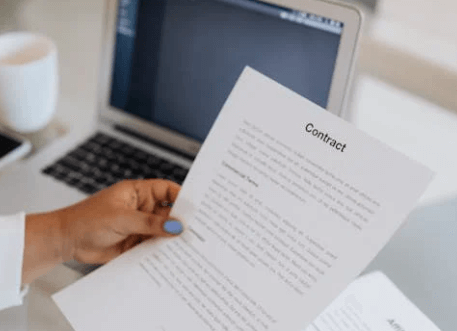Embarking on the journey to owning a home can present complexity with many options, including engaging in Rent-to-Own Contracts in Florida. This alternative route to owning a home allows potential buyers to immediately move into their dream home and purchase it after a certain period. Understanding Rent-to-Own Contracts in Florida is crucial for anyone considering this option, as it involves unique terms and conditions that differ from traditional home-buying processes. This blog aims to demystify the concept and outline the key aspects you need to know about rent-to-own contracts in the Sunshine State, ensuring you make an informed decision about your future home.
Steve Daria and Joleigh are seasoned real estate investors who have successfully navigated the complexities of rent-to-own contracts in Florida’s dynamic market. They highlight the importance of understanding these agreements’ specific terms and conditions to avoid common pitfalls. Their expertise underscores the potential of rent-to-own contracts in Florida as a strategic investment tool when approached with informed caution and thorough due diligence.
The Basics of Rent-to-Own Real Estate Agreements
A rent-to-own—or lease option—is a contractual agreement under which a tenant can purchase the property at a set price at a future date within a specified period.
In Florida, these contracts are frequently used to facilitate home sales where potential buyers cannot secure a traditional mortgage.

The agreement includes two main components:
The Lease Agreement
The initial rental contract outlines standard lease terms and conditions. It includes the monthly rental amount, the length of the lease period, and each party’s maintenance and repair responsibilities.
The Option to Purchase
The option agreement presents a purchase price for the property, usually higher than the current market rate, which the tenant can exercise within an agreed-upon timeframe. The tenant pays the landlord a one-time, non-refundable fee to secure this option.
Both components are legally binding, protecting the rights of both the tenant and the landlord. They also detail the consequences of missing rental payments or breaching any terms of the agreement.
Legal Framework in Florida
Rent-to-own contracts in Florida are regulated by landlord-tenant, real estate, and contract laws. Both parties involved must clearly understand their respective rights and obligations.
Florida stipulates that any lease option contract longer than 12 months must be notarized, while any agreement to buy or sell real property within two years must be in writing to be legally enforceable. This offers a significant layer of protection and clarity for all involved.
The Florida Residential Landlord and Tenant Act
This act outlines residential landlords’ and tenants’ specific duties, rights, and remedies.
It covers various aspects, such as the payment and return of security deposits, access to the property, and the termination of leases.
Real Estate Commission Rules
The Florida Real Estate Commission, which operates under the Florida Department of Business and Professional Regulation, also has specific rules that apply to rent-to-own arrangements.
Licensed real estate professionals engaging in these transactions must ensure compliance with these regulations. Understanding these legal frameworks is critical to avoiding disputes and ensuring a smooth transaction.
Benefits and Risks for Landlords and Tenants
Renters and landlords are drawn to rent-to-own agreements for various reasons.
Benefits for Tenants
Tenants can lock in the home’s purchase price, allowing them to buy at a price known when their financial situation might be more conducive.
This situation can be particularly appealing for those who need time to improve their credit scores or save for a down payment.
Potential Risks for Tenants
On the flip side, if the tenant cannot commit to the purchase option at the end of the lease term, they may forfeit the option fee and any additional rent premium paid. This could be a substantial loss if not prepared for.
Benefits for Landlords
Landlords benefit from a higher upfront payment and monthly rent amounts that may be partially credited toward the purchase price.
Additionally, if the tenant doesn’t exercise the option, the property owner keeps any payments received and the property.
Potential Risks for Landlords
On the downside, if the tenant does exercise the purchase option, the landlord will have to sell the property at the agreed price, regardless of the market value, which could result in a missed opportunity for a larger sale.
Navigating these benefits and risks is essential for any landlord or tenant considering a rent-to-own agreement.
Critical Considerations for Creating a Rent-to-Own Contract
A well-structured rent-to-own contract is essential for clarity and to avoid future disputes. Here are some vital points to ensure are addressed in the agreement:
Property Value
The agreement must stipulate how the property’s future value is determined, especially in the case of market fluctuations. This can have a significant impact on the profitability of the agreement for both parties.
Maintenance Responsibility
Precise definitions of maintenance and repair responsibilities should be outlined in the lease to ensure everything is clear.
Option Consideration
This upfront fee can be substantial and should be negotiated carefully. Tenants should consider whether it’s refundable, and landlords should evaluate its significance to the property’s value.

Rent Premium
In a rent-to-own contract, a portion of the rent paid each month is typically credited toward the future purchase of the property.
Negotiating this aspect of the agreement is crucial for tenants as it directly impacts their ability to accumulate equity in the property and eventually transition from renting to homeownership.
By negotiating a higher percentage of the rent to be allocated toward the down payment or purchase price, tenants can increase their motivation and commitment to ultimately purchasing the property.
This incentive can also make the rent-to-own arrangement more appealing than traditional renting, as it offers the opportunity to build toward homeownership while renting.
Purchase Price
Setting the purchase price in advance is a critical aspect of a rent-to-own agreement, as it provides clarity and stability for both the tenant-buyer and the landlord-seller.
This predetermined price considers various factors, including current market conditions, anticipated changes in property values, and the duration of the lease agreement.
By establishing the purchase price upfront, both parties mitigate the risk of uncertainty and potential disagreements regarding the property’s value at the time of purchase.
This foresight allows the tenant-buyer to plan and budget effectively for their future homeownership, knowing the amount they will need to pay to acquire the property.
Financing
It’s essential to assess the tenant’s financial readiness to ensure that they’ll be able to secure a mortgage when the time comes to exercise the purchase option.
The Market and Economic Climate
Both tenants and landlords are affected by the market and economic climate.
For tenants, a rent-to-own agreement can be a savvy move in a rising market, whereas landlords may prefer higher rent in a seller’s market.
Access to market trends and economic forecasting can significantly inform decisions related to rent-to-own contracts.
The Importance of Real Estate Agents and Attorneys
Professional real estate agents and real estate attorneys can provide valuable expertise in creating and understanding the terms of a rent-to-own agreement.
Their legal and market knowledge ensures that the agreement aligns with both parties’ objectives and complies with state laws.
Resolving Disputes
Even with a meticulously crafted contract, disputes can arise.
In Florida, mediation is often an effective and cost-friendly way to resolve issues outside of court.
The Florida Bar Association can assist in finding a qualified mediator or attorney.
Conclusion
Rent-to-own contracts in Florida provide an alternative path to homeownership that can benefit tenants and landlords. However, these contracts require a thorough understanding of the legal and market frameworks and meticulous attention to the agreement’s details.
Whether you’re a potential buyer or a property owner, it’s clear that rent-to-own contracts can be a win-win scenario. By conducting thorough research, seeking expert guidance, and transparent communication, individuals can turn what may seem like an unreachable dream into a tangible reality with fruitful rewards for all involved.

